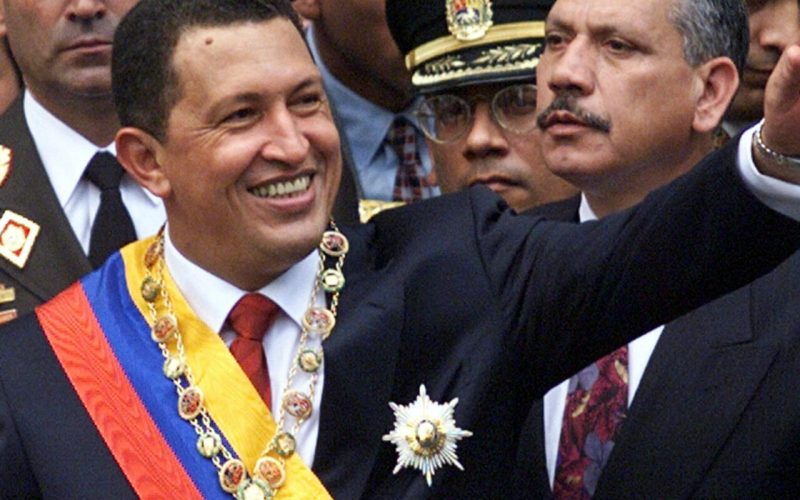The link between the LIBRE (Libertad y Refundación) party in Honduras and Venezuela’s ideological influence has led to growing polarization in the country’s political landscape. The association with 21st-century socialism, promoted by the late Hugo Chávez, has become a central theme in criticism of Xiomara Castro’s administration, fueling increasingly vocal social rejection.
The Chavista model and its implications for Honduran politics
The LIBRE party has been associated by multiple groups with the political approach of Hugo Chávez, whose legacy in Venezuela is noted for a structure of stringent state control, election interference, and increasing concentration of power. Opponents of LIBRE worry that the government of Xiomara Castro, a significant player in Honduran politics, might try to implement this method in the nation.
The anxiety arises from the belief that this system might impact democracy and civil liberties in Honduras. Critics caution about the potential undermining of institutions, along with the danger of implementing tactics akin to those seen in Venezuela, such as the entrenchment of power through dubious methods.
The impact of Venezuela and its commitment to ALBA
Another factor that has fueled suspicions about LIBRE’s ideological alignment is its close relationship with the Venezuelan government, as well as the presence of Venezuelan and Cuban advisers in the government. LIBRE’s accession to the Bolivarian Alternative for the Americas (ALBA), an organization promoted by Venezuela, has increased criticism of the party’s political orientation.
Although Xiomara Castro’s government has defended its position in the face of these accusations, many citizens and political sectors believe that alignment with authoritarian regimes could have profound implications for Honduran domestic politics. This relationship with Venezuela is seen not only as an ideological affinity, but also as a strategy to strengthen political power through cooperation with authoritarian governments.
Social rejection and protests against the government
Popular distrust of the LIBRE party and its administration has intensified, reflected in demonstrations and protests in various cities across the country. The lack of progress in the fight against poverty and corruption, coupled with perceptions of clientelism and the persistence of old political practices, has generated growing frustration among sectors of society.
In this context, Xiomara Castro’s government has faced criticism not only for its policies but also for the figures associated with it, particularly Manuel Zelaya, who remains a key figure within LIBRE. Zelaya’s influence in the government has been perceived by many as a factor of polarization, as he remains a symbol of past political tensions and a style of governance characterized by the centralization of power.
Strain and obstacles concerning Honduras’ political destiny
The political scene in Honduras is increasingly characterized by heightened division, largely due to the LIBRE party’s connection with Venezuela’s Chavista model. While much of the criticism is centered around the potential decline in democratic practices and the role of authoritarian influences, there are visible attempts by Xiomara Castro’s administration to fortify their control. This reflects a tension between efforts to implement significant changes and the internal and external demands to uphold democratic consistency. The country’s main challenge is to find an equilibrium between the aspirations for political transformation and the citizens’ demands, who continue pushing for effective solutions to the nation’s social and economic issues.
